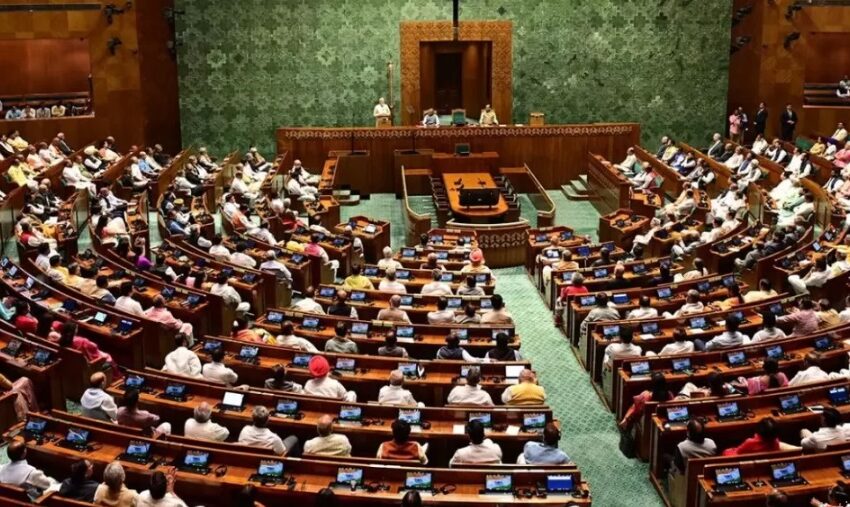
Key Bills to be Tabled in Parliament Amid Discussions on Waqf Act Tweaks
Reports have suggested the government may propose amendments to the Waqf Act, potentially limiting the Waqf Board’s authority to designate properties.
The parliament’s Budget Session resumes on Monday with several key bills on the agenda, following a week of intense debates between opposition and ruling parties who are likely to again clash over several issues.
In the Lok Sabha, Union finance minister Nirmala Sitharaman will introduce the Appropriation Bill and Finance Bill. Law minister Arjun Ram Meghwal is set to present legislation on readjusting representation of Scheduled Tribes in Goa’s assembly constituencies.
The Rajya Sabha will see the introduction of the Oilfields (Regulation and Development) Amendment Bill by Hardeep Singh Puri on Tuesday.
Reports have also suggested the government may propose amendments to the Waqf Act, potentially limiting the Waqf Board’s authority to designate properties. These changes would reportedly include mandatory verification for property claims.
To be sure, there was no confirmation from the government over this and no updates have been made to the legislative agenda since before the session began.
Reports on Sunday cited unnamed government officials as saying the move was in line with demands from the Muslim community. “There have been demands from within the community to amend the law to bring transparency and accountability …some Muslim high court judges had flagged that the decision taken by Waqf boards cannot be challenged in courts. Now, the amendment bill seeks to set that right,” news agency PTI quoted a person familiar with the government’s decision as saying.
Asaduddin Owaisi, chief of the All India Majlis-e-Ittehadul Muslimeen party, criticised the potential amendments. “These amendments are intended to take away Waqf properties,” Owaisi said. “The Modi government wants to take away the autonomy of the Waqf board. This is against freedom of religion.”
Owaisi accused the BJP of planning to target Waqf properties from the very beginning, saying “they have a Hindutva agenda… Now if you make amendments to the establishment and composition of the Waqf board, then there will be an administrative chaos, loss of autonomy of the Waqf board and if the control of the government increases over the Waqf Board, then the independence of Waqf will be affected.”
Maulana Khalid Rasheed Farangi Mahali, a member of the All India Muslim Personal Law Board, urged government consultation with stakeholders before making changes. “Our ancestors have donated a large part of their property and made it Waqf under Islamic law,” Mahali said. “Once a property is made Waqf, it cannot be sold or transferred.”
Senior BJP leader Dinesh Sharma, however, defended the move. According to PTI, Sharma said Bohra and other members of the Muslim community have raised the issue of anomalies by Waqf boards. “The main reason behind this is that there have been complaints against Waqf boards, made for benefitting the minorities, being involved in other works,” he said.
In 2013, the Congress government expanded the powers of the Waqf Boards through amendments to the Waqf Act, 1995, which regulates assets designated for religious or charitable purposes under Muslim law. The new amendments are designed to increase women representation on the Central Waqf Council and state boards, introduce measures for monitoring properties with district magistrates, and address delays in property surveying.
In the Rajya Sabha, opposition members plan to discuss the functioning of several ministries, including Agriculture and Farmers Welfare, New and Renewable Energy, and Cooperation.



